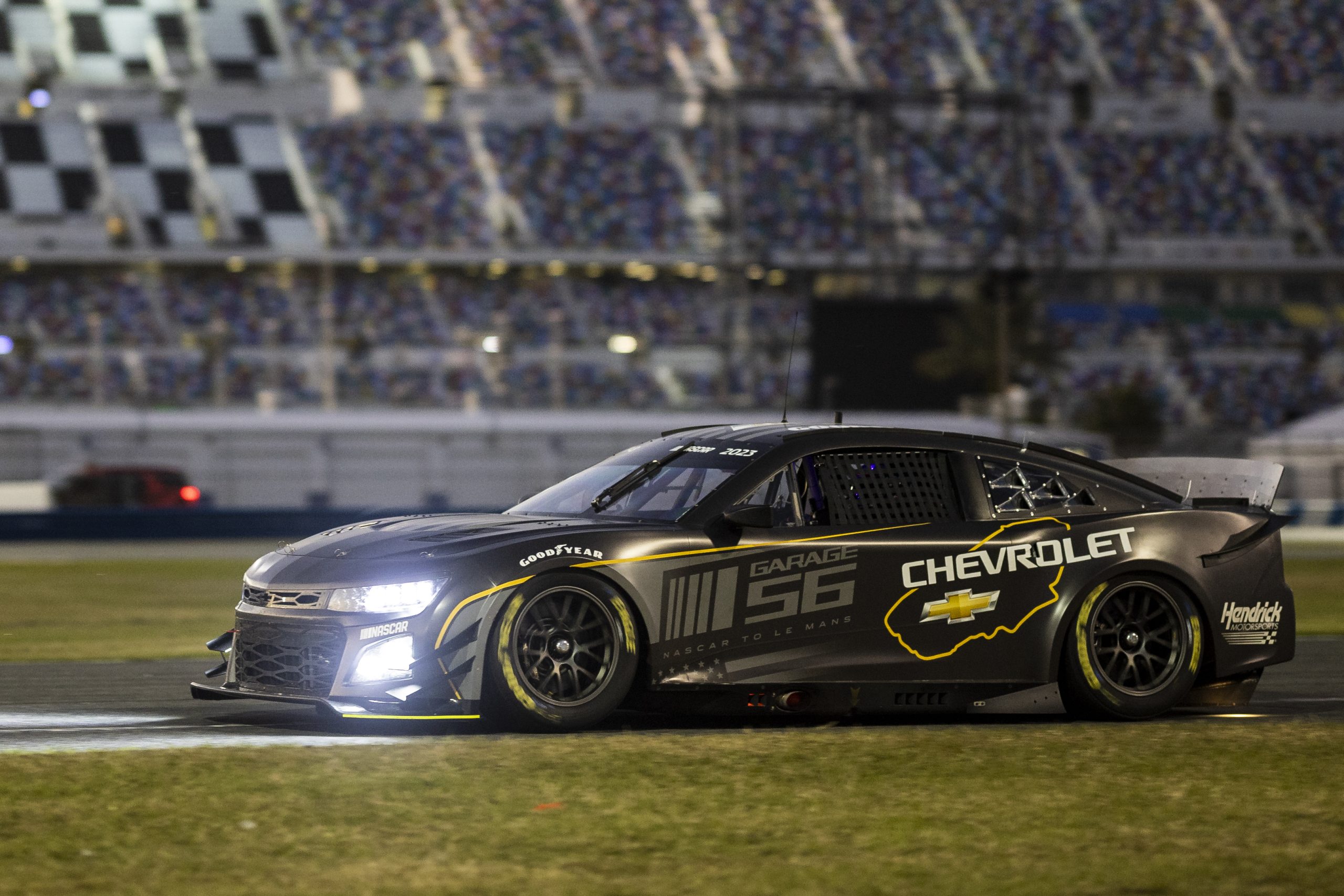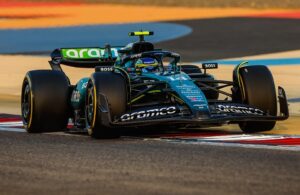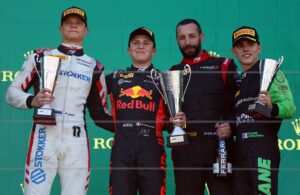NASCAR is at a crossroads. Do they continue to cater to an aging fanbase? Do they follow the OEMs to electrify with a Hybrid NASCAR?
Look at any form of NASCAR social media. Now go post “NASCAR is going electric” or “Hybrid NASCAR” I dare you. You’ll likely be mocked mercilessly. Add to that receiving a TON of the good, old-fashioned “I’ll never watch again” comments. But some people like myself work in both key industries here; automotive and motorsports, who see the winds of change. People who are not afraid of that change. NASCAR has been talking about bringing the tech to the sport for a few years. Here is why.
What is a Hybrid and Can They Race?
For those who do not know, a hybrid is not an “all-electric car”(i.e. Tesla). It is a gasoline-powered internal combustion engine mated in some way to an electric motor. There are several variants of hybrids such as mild hybrids, full hybrids, and Plug-in hybrids (see details here).
In terms of a NASCAR hybrid, these will not be the stereotypical “Prius” with what many see as underwhelming power with no engine sound. Many feel hybrids are boring and uninspiring. Quite the contrary, Hybrids make up some of the fastest, most powerful cars ever to have been built. Porsche 918 Spyder, Ferrari La Ferrari, McLaren P1, Mercedes-AMG’s Project 1 and even the 250+ MPH $2.1 million McLaren Speedtail.
With this being said, yes. Hybrids can be race cars. Just look at the biggest racing series in the world, Formula 1. Introduced in 2009, F1’s hybrids have become some of the most efficient powertrains on earth and their viewership continues to go to the moon. IMSA joined the hybrid world in 2023 with more and more motorsports electrifying their cars. This leaves NASCAR once again, the odd man out and late to the party once more.
Where the Fans Seem to Stand
What a great many fans ignore, is that NASCAR is almost completely reliant on its OEMs (Original Equipment Manufacturers). These are the same fans who will preach about how NASCAR is “Stock Car” racing. Then they will say the cars need to be more stock. Most of them refer to big 900hp V-8 engines and a body that is identical to the car they can come see me at the dealership and purchase. Well, folks as a car guy, I hate to say it, here is where my automotive expertise comes into play. But these manufacturers are no longer building these big fire-breathing V8 engines everyone seems stuck on.
On the other hand, many fans see these changes coming and embrace them. These fans either fully or somewhat understand the future of the automotive industry which is gearing toward some sort of electrification.
Where the Manufactures Stand
Chevrolet for example is discontinuing the Camaro at the end of 2024 and replacing it with an electric sports sedan. Hell, even their upcoming “E-Ray” Corvette is a Hybrid. Mate that with the rumored upcoming “Zora” variant being all-electric. Dodge will no longer be building gas-powered cars after the end of 2023. With the discontinuation of the Charger and Challenger line, the brand is replacing the muscle car duo with a large, electric coupe. The new Charger Daytona SRT Banshee outperforms the brand’s current V-8s. Even it’s supercharged V-8s (Hellcats).
Ford is the only one of the more recent NASCAR OEMs to continue V-8 development in the upcoming Mustang even though their smaller turbocharged engines outsell their V-8s in both Mustang and F-150. Toyota on the other hand is the opposite, never building a Camry or Supra in a V-8 variant and discontinuing the V-8 Tundra for 2021.
Brands such as Honda and Dodge publicly are leaning away from the sport due to the lack of electrification. If these two are holding back, how many others are in the same boat?
What Does That Mean For NASCAR?
These brands are building more capable, powerful, fuel-efficient, and far more cost-efficient engines. Many, with a Hybrid assist of some sort. So what does this mean for NASCAR and NASCAR fans? Well, like it or not, the future is coming. NASCAR has been in conversation with other OEMs such as Honda and even Dodge, but neither has shown any true interest until NASCAR makes a change with its powertrains.
This was backed up in 2021 when NASCAR president Steve Phelps even stated that he would be surprised if another manufacturer decided to join the sport until some sort of hybridization is implemented. He also added that he doesn’t foresee a time when the sport brings all of its series fully electric. It does mean, however, that NASCAR will implement a Hybrid powertrain, and sooner rather than later. It’s exactly why they went with the transaxle.
How Does a Hybrid NASCAR Benefit the Sport as a Whole?
Well, it’s brilliantly simple. New technology brings new eyeballs. New eyeballs will bring several key benefits to NASCAR. Now I’m not just talking about people watching on TV “eyeballs” but also technology companies. Tech companies will bring sponsorship and that is something this sport needs… badly. A Hybrid NASCAR will also bring those new OEMs I mentioned earlier.
As with any Hybrid vehicle you can immediately count on the fuel savings. The sport and fans can rest easy knowing there would (should) be less legislative actions that can be used to suppress the sport as well.
So with all of this information, I ask you. What do you think? Will a NASCAR Hybrid stock car benefit the sport in the long run?






